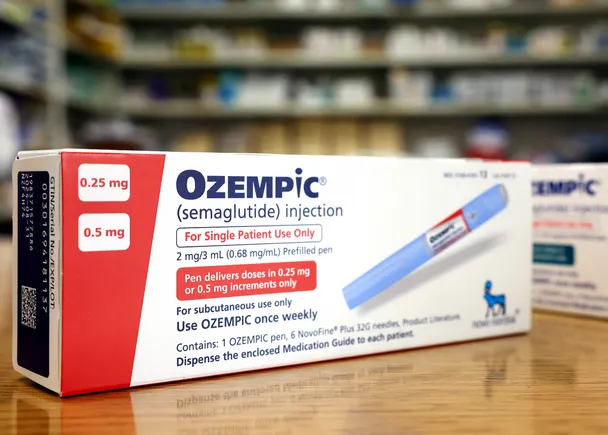European regulators want to know more about the risks of GLP-1 drugs


Europe’s drug regulator has more questions about the safety and potential risks of a new, widely popular class of medicines.
Known as GLP-1 agonists, the class includes Novo Nordisk’s Ozempic, Wegovy, Rybelsus and Saxenda, as well as Eli Lilly’s Trulicity. These medicines prompt the body to produce insulin, making them effective treatments for diabetes or weight loss — and in some cases, both. Demand for Ozempic, Wegovy and a similar Lilly drug, Mounjaro, has skyrocketed over the past year, so much so that their manufacturers have run into supply constraints.
The drugs, given how many patients could potentially take them, have come under close scrutiny. The Europeans Medicines Agency, for instance, is concerned about their safety, following reports from Iceland that a few people taking Ozempic or Saxenda experienced thoughts of suicide or self-injury.
The EMA began a review of those two products in early July, but expanded its examination to the broader GLP-1 class about a week later. By mid July, the agency said it knew of about 150 reports of possible self-injury and suicidal thoughts.
The EMA’s safety committee met again this week. In a statement, the agency said that, currently, “no conclusion can be drawn on a causal association” between GLP-1 agonists and thoughts of self-harm or suicide. Yet “there are several issues that still need to be clarified,” so the committee has additional questions for the makers of these drugs.
The specific drugs of interest are: Ozempic, Rybelsus, Wegovy, Victoza, Saxenda, Xultophy, Byetta, Bydureon, Lyxumia, Suliqua and Trulicity.
The committee plans to further discusses the issue at a meeting in April.
Now more than ever, GLP1- drugs are providing huge profits for their developers. Across its business, Novo recorded net sales of 166 billion Danish Krone, or roughly $24.2 billion, during the first nine months of 2023, reflecting 29% growth compared to the same period last year. Lilly, meanwhile, has watched its market value soar to more than $560 billion due to investor enthusiasm that is, in good part, tied to the company’s opportunity in weight loss.
Other large pharmaceutical firms are trying to carve out a share in the market as well. Just last month, AstraZeneca, which sells an extended-release version of the GLP-1 drug Bydureon, made a bet on a new experimental therapy developed by the China-based biotechnology company Eccogene. The therapy is in early-stage human testing, and is designed as a once-daily, oral treatment for regulating GLP-1 activity.
Pfizer, too, has been working on an experimental GLP-1 drug called danuglipron. That drug hit a setback on Friday, with development of a twice-daily version of it stopped due to tolerability issues observed in a mid-stage study of obese patients.
Pfizer noted that patients taking the drug still lost a significant amount of weight. The company has been testing a once-daily formulation as well, and intends to focus on that version moving forward. A study investigating how once-daily danuglipron interacts with the body is ongoing, with data expected in the first half of next year.
This post has been syndicated from a third-party source. View the original article here.




